Portraits from the Power of Food Festival, 18–28 September 2025
From mushroom growers in tower blocks to food-co-op founders and community gardeners, a new portrait series captures the people reshaping the way food is grown, shared and eaten in Tower Hamlets. The series launches the Power of Food Festival (18–28 September), a ten-day programme of free community-led events celebrating the borough’s grassroots food movement.
Tower Hamlets is the most densely populated and fastest-growing borough in England and Wales. On average, 112 people share a football-pitch-sized area compared to the national average of three. Yet despite this squeeze on space, residents are carving out gardens, co-ops and kitchens that challenge the broken food system and point towards something better.
Photographed by East End photographer Sarah Ainslie, the portraits spotlight local changemakers. The portraits will be unveiled at the festival’s opening event before going on public display at:
- Tower Hamlets Town Hall (18–30 September)
- RichMix arts centre street-side (18–28 September)
- St Paul’s Way Community Centre (12 September–14 October)
The Power of Food Festival marks five years of the Just Food and Climate Transition (Just FACT) programme, led by Wen and supported by The National Lottery Community Fund’s Climate Action Fund.
Photographed by East End photographer Sarah Ainslie, and curated alongside Just FACT Mobilser and Artist Hussina Raja, the portraits spotlight local changemakers including…
Sajia Nessa
Alani Shafiq
Rokiah Yaman
Genia Leontowitsch & Jim Ford
Laura Buckley & Liam Williams
Aska, Fawziyah & Anna
Rebecca Evans-Merritt
Shazna Hussain & Sajna Miah
Melly, Shamima, Sabina & Marisa
Katrina Wright
Aleya Taher
Cameron Bray, Andy & Angharad
Rita Attille
Portraits
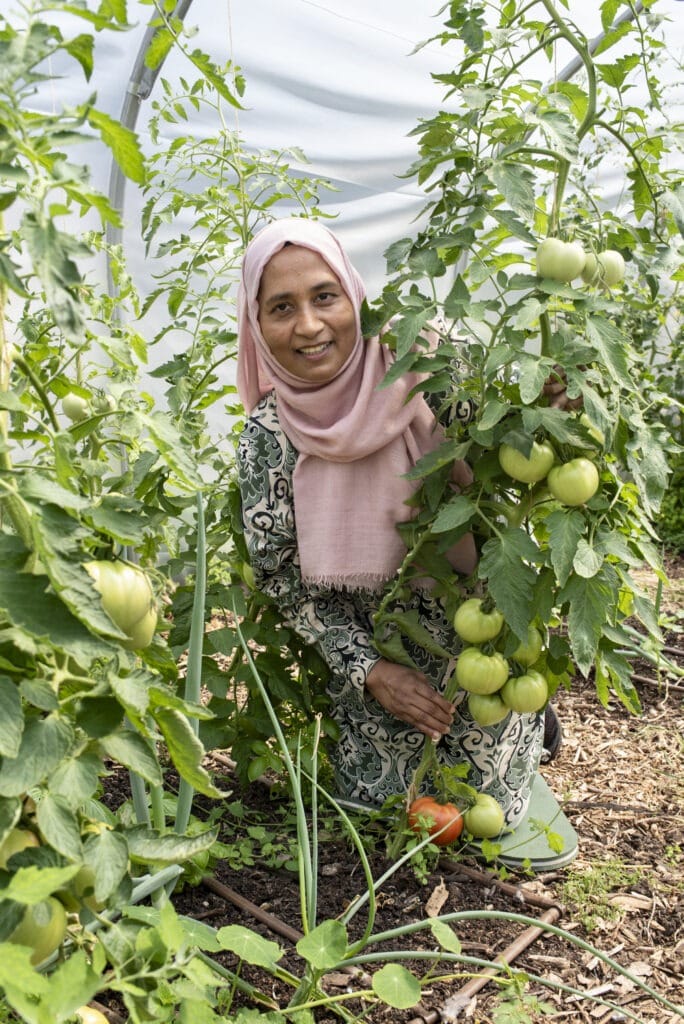
Sajia joined Stepney City Farm in August 2023 and grows Bangladeshi vegetables for the farm’s produce list, including kodu, uri beans, snake gourd and bird’s eye chillies. She works on the Farm Shop market days and supports allotment holders who speak Sylheti, helping make the site welcoming and accessible.
“Many of the Farm’s allotment plot holders only speak Sylheti, a dialect of Bengali, so I can speak to them about any challenges and make sure they are happy. I work at our Farm Shop on Saturday market days, and encourage our diverse community to try new vegetables, which they may not have tried before.”
– Sajia Nessa
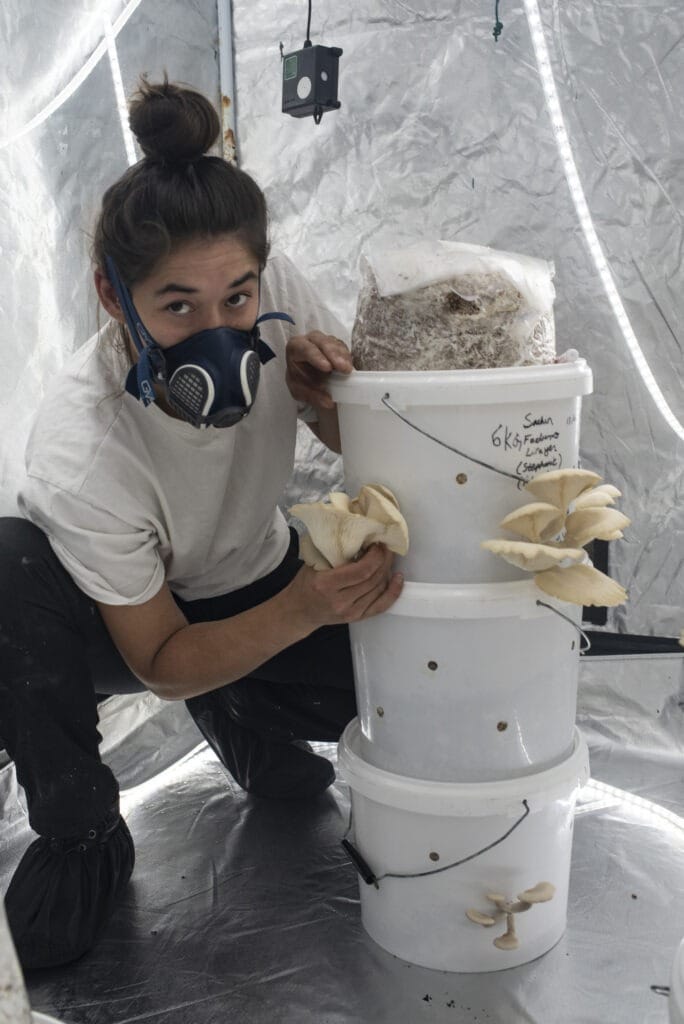
Alani began growing oyster mushrooms in their living room during lockdown and now works with Mad Leap as a mushroom-growing technician and trainer, growing low-tech, seasonal oyster mushrooms for sale. They run workshops as part of the festival programme.
“I hope people start growing mushrooms in every community garden and pressuring their local council and housing association to create local closed looped systems – every council estate should (could) have an Anaerobic digester and mushroom farm!” – Alani Shafiq
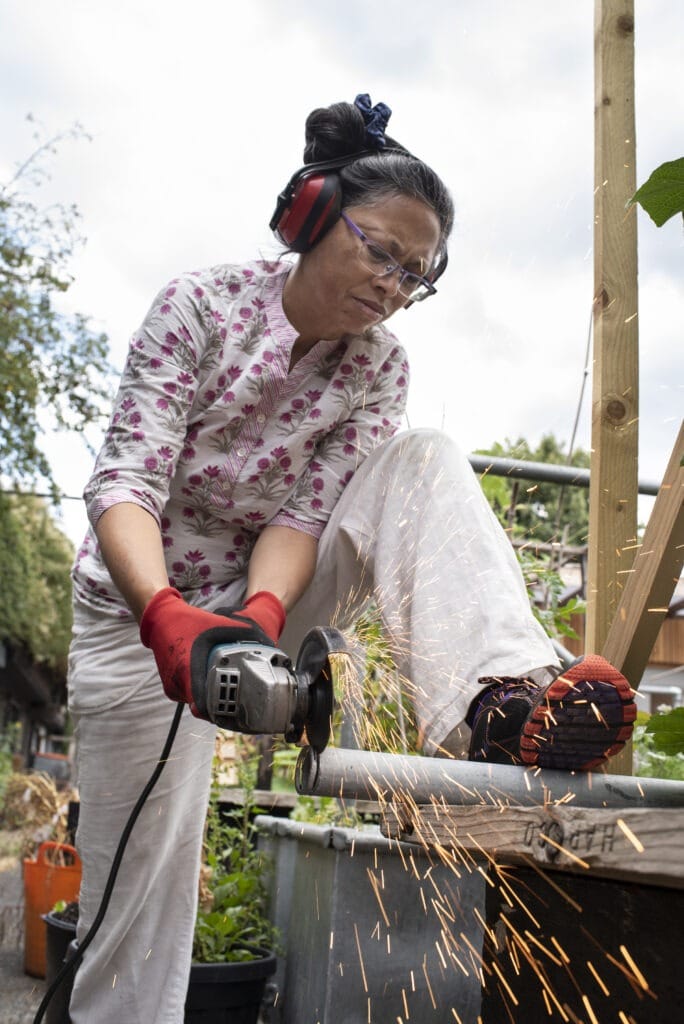
Rokiah is a co-founder of Mad Leap, which pioneers a circular, zero-waste approach that transforms food waste into bioenergy, biofertiliser and compost to support local food growing, green training and low-carbon livelihoods.
“We want to share our enthusiasm for nature and nature-inspired biotechnology. We hope to give people a better understanding of how microbes play a key role in supporting our digestion, health, and breaking down our bioresources – there is no such thing as waste in nature!” – Rokiah Yaman
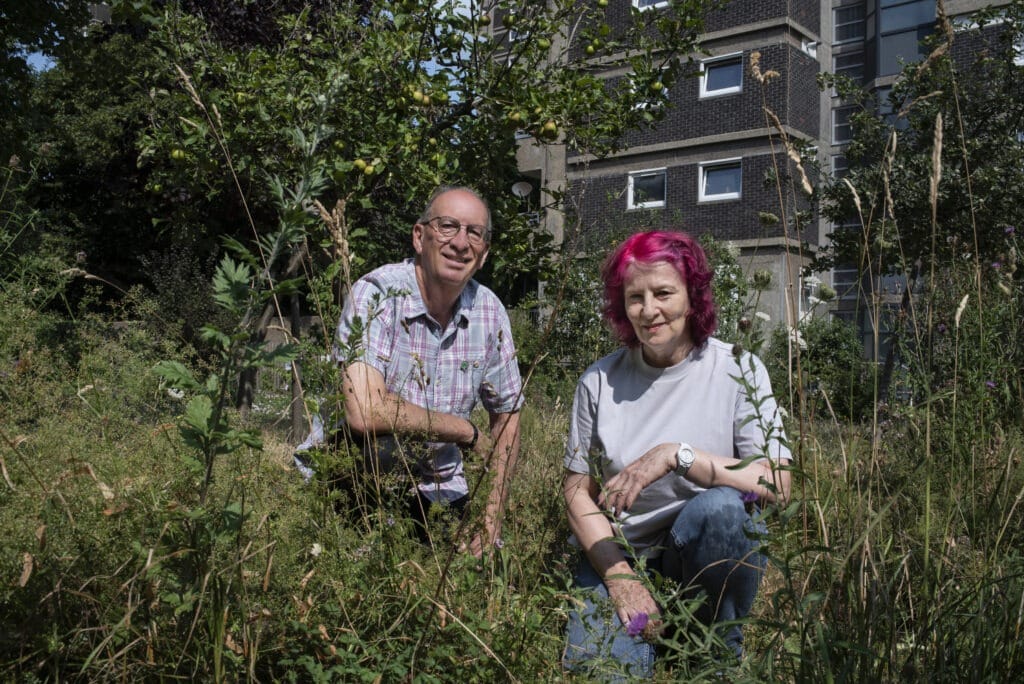
Genia and Jim are volunteers and custodians of Swedenborg Square Orchard and helped transform an unloved patch of land on the St George’s Estate into a green space where residents can grow fruit and vegetables, enjoy the outdoors and meet their neighbours.
“We keep the entire orchard wild for insects. The bees, the butterflies, they’re all hidden in the grass. The site gives everyone a chance to grow for free, and we love having kids doing things in here, because they really enjoy it.” – Genia Leontowitsch
“I’m really proud of it – this is the difference I’ve made.” – Jim Ford
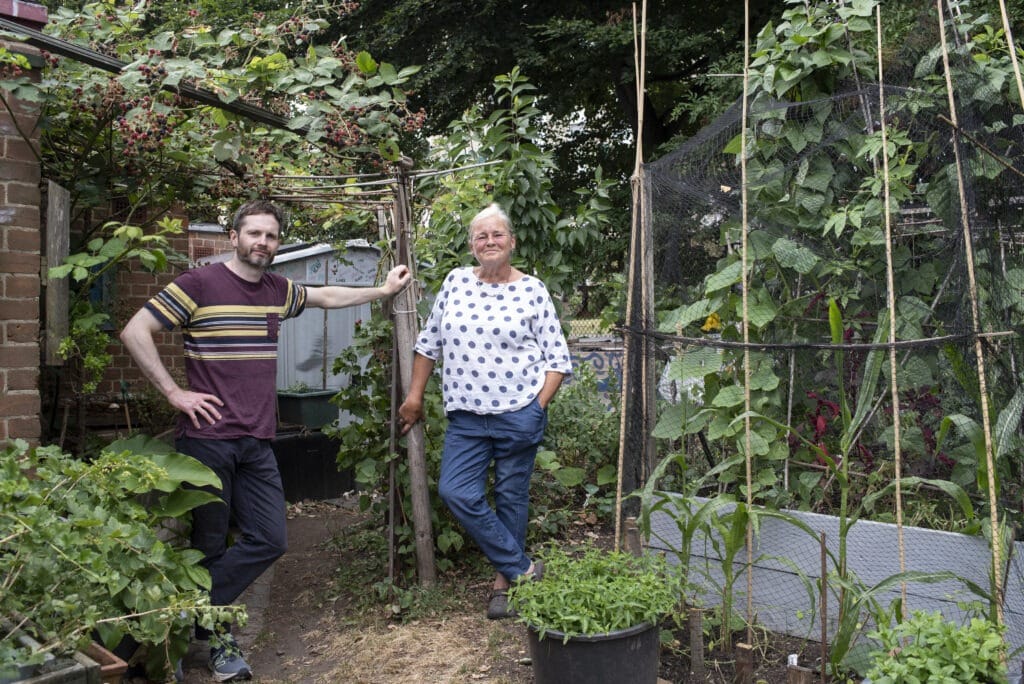
Volunteers Laura and Liam have helped turn a disused play area into Cranbrook Community Food Garden, which now includes raised beds, a mini food forest, a greenhouse, compost bays, a pergola with a green roof and wildlife features. The site runs regular volunteering sessions and will host a harvest celebration as part of the festival.
“Volunteering in the garden has been rewarding, collaborative, creative and led to lots of surprises. People just take the initiative to just add things in the garden, because people have seen something happening and been inspired and thought we could do something like that. Recently we’ve added a rainwater harvesting system, and planted fruit bushes in the lane outside the garden.” – Liam Williams
“It’s attracted a lot more people to the garden… people feel more likely to come in, it’s really added to our estate.” – Laura Buckley
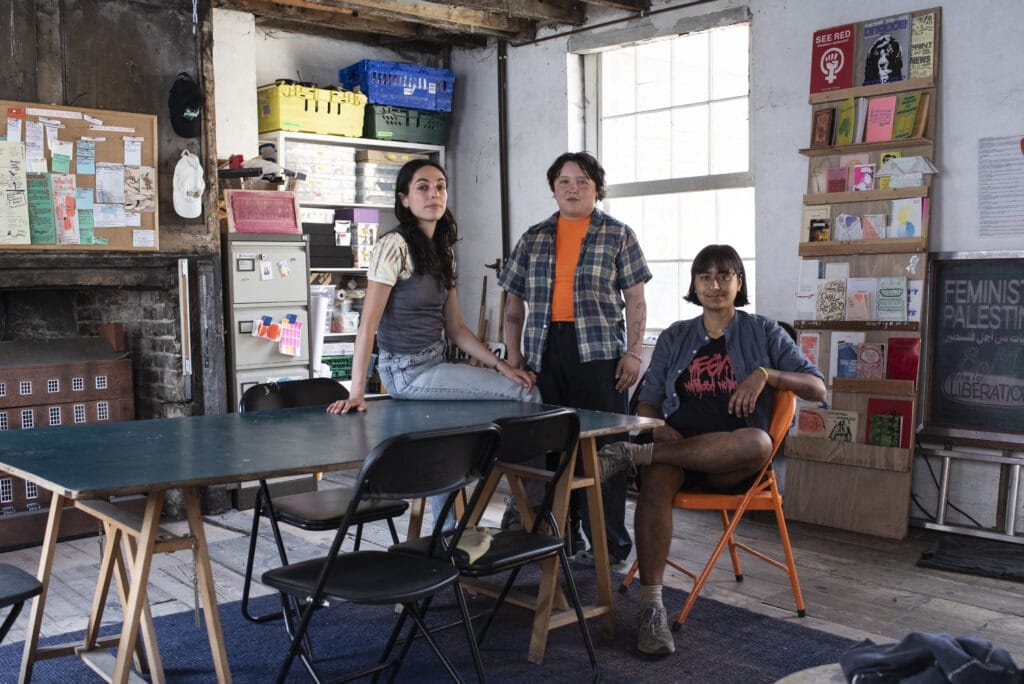
Stewards at House of Annetta, Aska, Fawziyah and Anna continue the legacy of the house as a place for communal food and spatial justice; the project’s Perpetual Stew runs as a week-long series during the festival, centred on a communal pot that is never emptied.
“To organise, to do things differently, you have to be together in space. So, House of Annetta offers free and local space to people… that’s just like, so precious.” – Aska Corfa Isehayek
“There isn’t this ideal of full completion – I think it really embraces the incompleteness of things: questioning and speculating and investigating.” – Fawziyah Rahman
“Here it always starts with food, so it also makes it more accessible. And more relaxed, more welcoming.” – Anna Welford
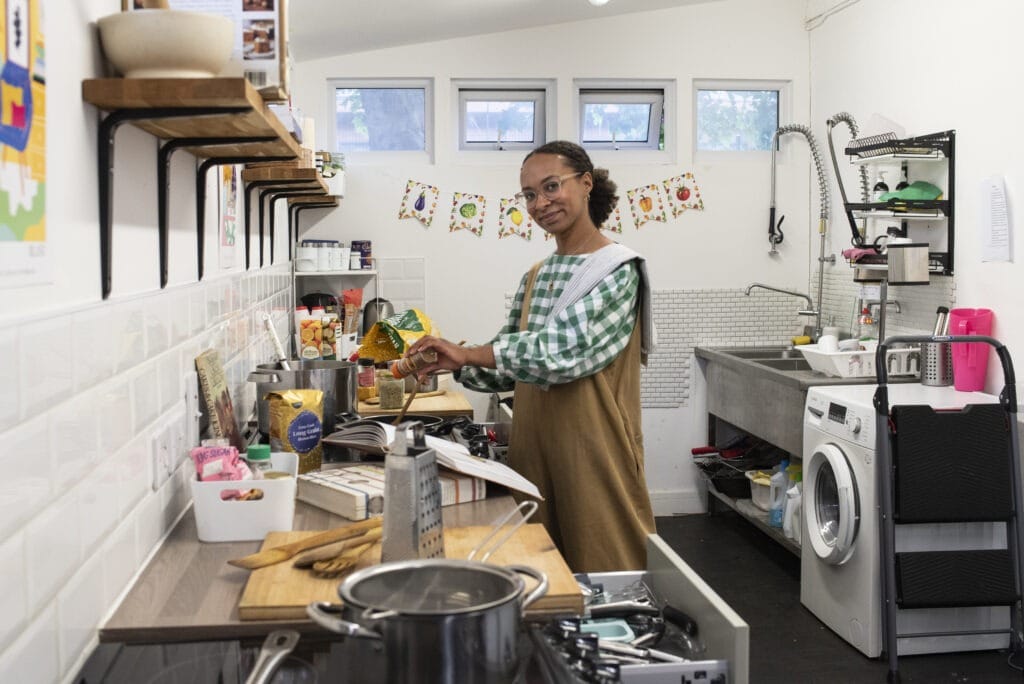
Rebecca is operations manager at Limborough Community Food Hub, a ‘grow, cook and eat’ hub that supports local people near the Burdett Estate to grow, learn and gather around food.
“We’re able to have that flow of like: growing food, cooking food, eating food.” – Evans-Merritt
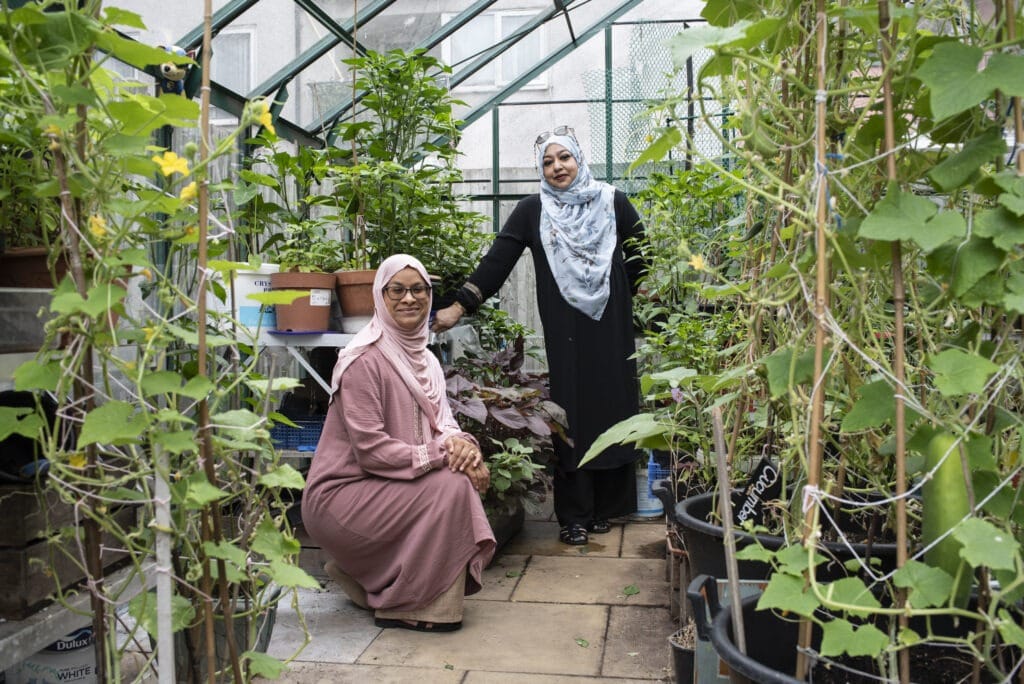
Shazna and Sajna form the Food Lives research team, working on projects that research eating choices and co-design supply chains, products and policy frameworks to deliver an affordable, healthy and sustainable diet for local communities.
“It’s giving a voice to those women that have never been asked. Or never really thought of being able to share their knowledge and expertise around food.” – Shazna Hussain & Sajna Miah
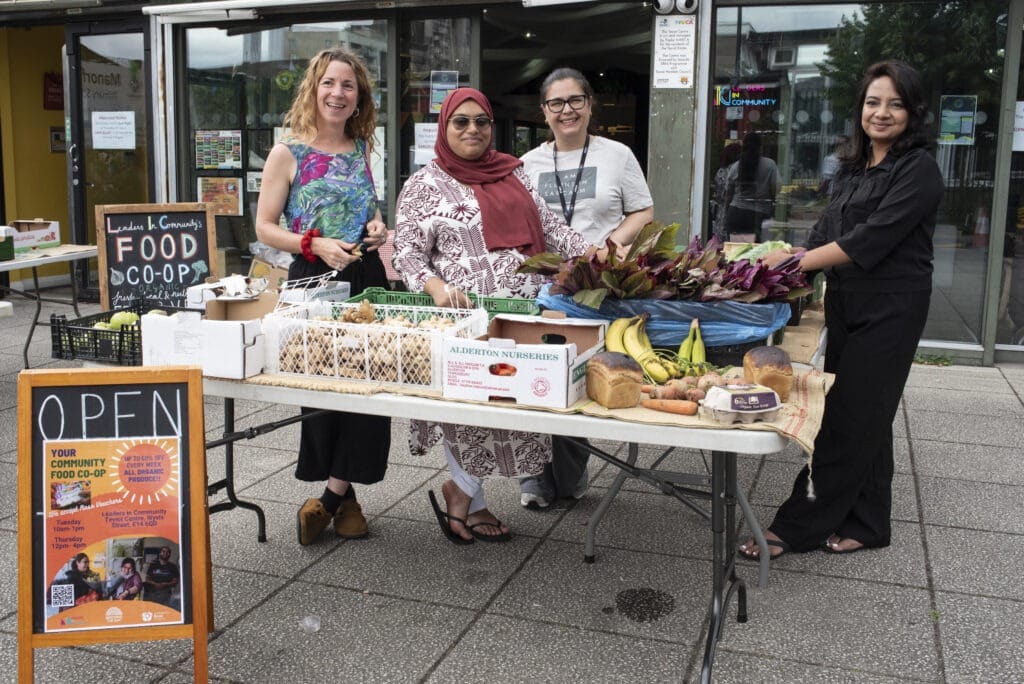
The Teviot Food Co-op runs as a pop-up twice a week at the Teviot Centre, selling subsidised organic fruit and vegetables to the local community and making healthy shopping more accessible in an area described in the release as a food desert. The co-op sells produce from Folx Farm in Hastings and is open every Tuesday 10:00–13:00 and Thursday 12:00–16:00.
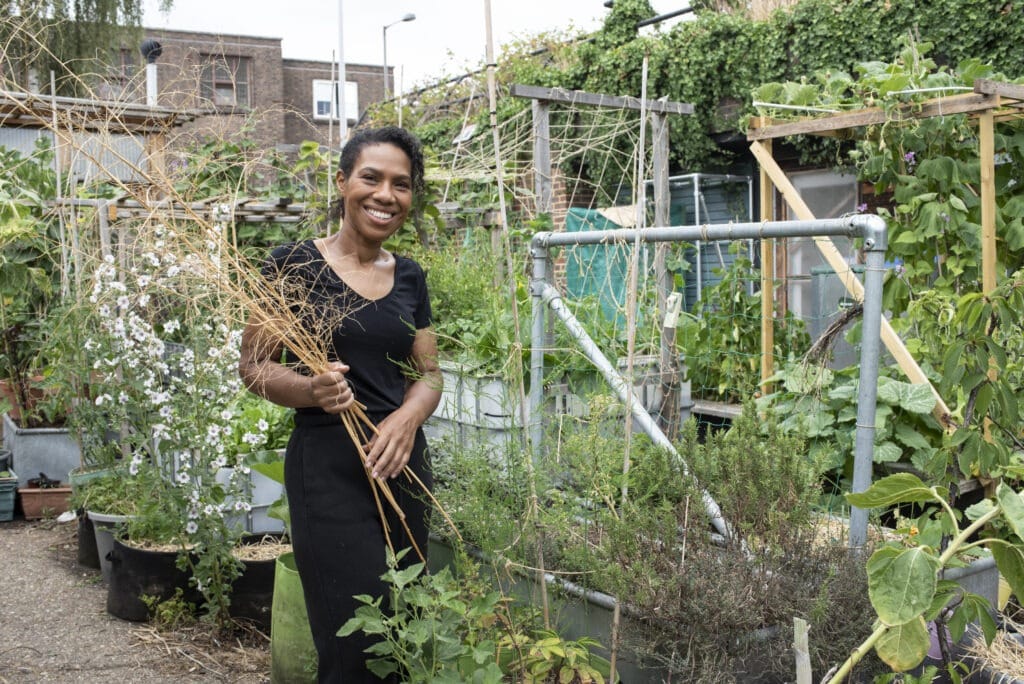
Katrina, part of the Right to Grow campaign, has been involved with R-Urban since the pandemic and leads green-skills sessions covering no-dig gardening, companion planting, composting and harvesting; volunteering sessions are followed by a free lunch.
“The main goal at R Urban is to maintain the site, make it look lovely, but also produce food, create biodiversity, natural habitats for bug life and microbial life… The volunteering promotes green skills, so skills sharing, skill learning. Getting people into horticulture, food, growing, learning all about the eco cycle of food. It has a kind of ripple effect as well, so you are impacting people’s lives and creating a legacy.” – Katrina Wright
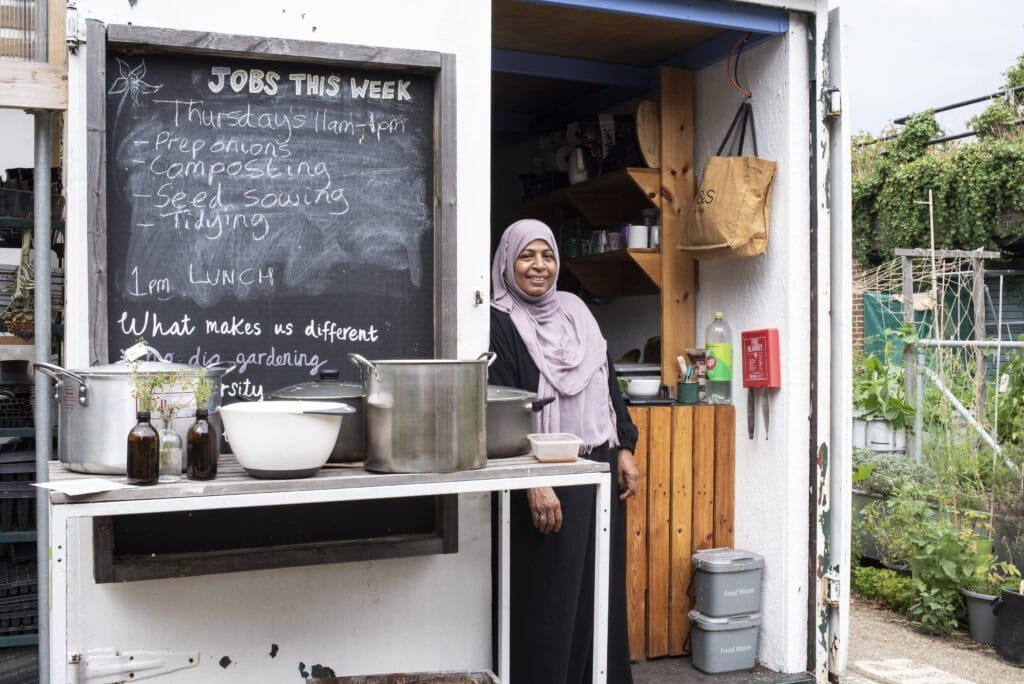
Aleya runs the Teviot People’s Kitchen, a community initiative that brings residents together for regular meals run from the R-Urban community garden and invests in skills, training and networks for a just food system.
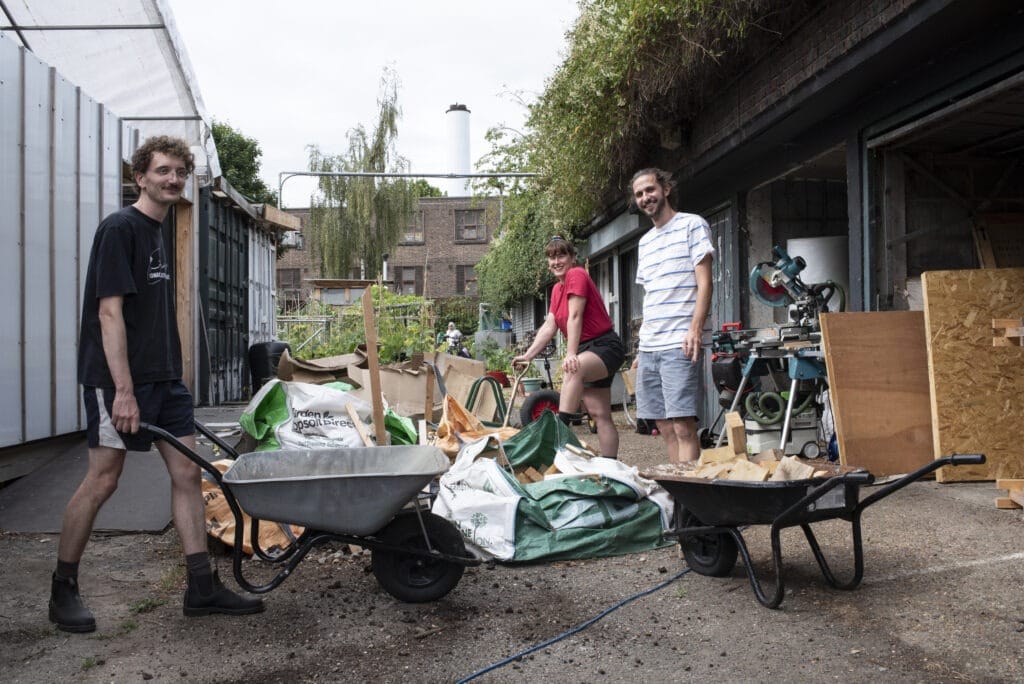
Cameron, Andy and Angharad are part of the R-Urban/Public Works team operating an eco-civic hub in Poplar that tests sustainable ways of working with food waste from tower blocks, creates nutrient-rich soil and runs workshops, volunteering sessions and foraging walks.
“It’s a space for learning, sometimes in a traditional sense… but also learning from each other, listening to each other, learning the stuff people already know.” – Cameron Bray
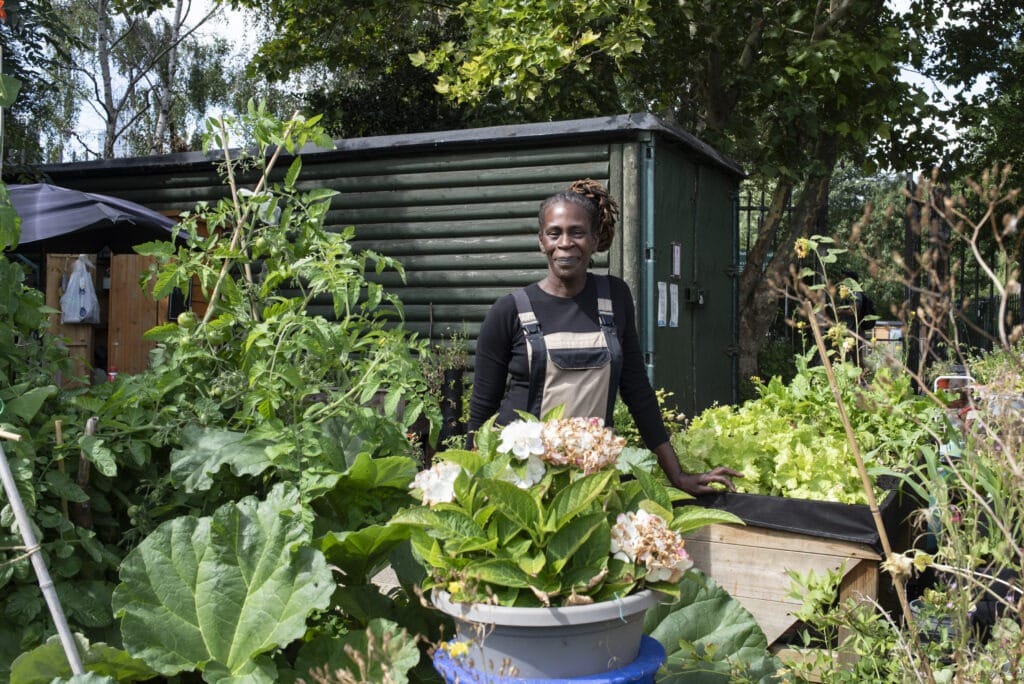
Rita works with Seeds for Growth to identify underused land on social housing estates and support tenants to create gardens that grow food, encourage play, offer a place to sit and chat, and build community connections, often with a focus on mental wellbeing.
“My ethos is to promote and encourage residents across London to grow together as a community which strengthens social mobility and community connections.” – Rita Attille
